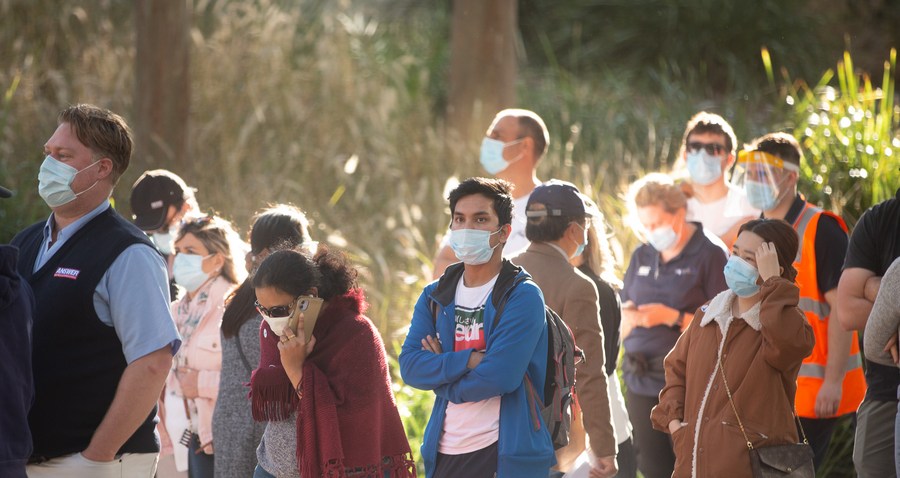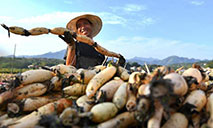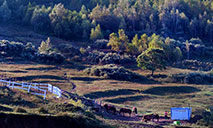New evidence suggests lab leak of coronavirus unlikely: Australian report

People line up at a COVID-19 vaccination centre in Sydney, Australia, on Aug. 16, 2021. (Photo by Hu Jingchen/Xinhua)
The pre-print study released online "provides strong evidence to support the 'natural spillover' hypothesis" of the origins of COVID-19, with results "that are hard to reconcile with the 'lab leak' hypothesis," according to a report from Australian media.
CANBERRA, Sept. 25 (Xinhua) -- A new study has provided evidence against the "lab leak" hypothesis of COVID-19, according to a report from Australian media.
The pre-print study released online "provides strong evidence to support the 'natural spillover' hypothesis" of the origins of COVID-19, with results "that are hard to reconcile with the 'lab leak' hypothesis," Hamish McCallum, director of the Center for Planetary Health and Food Security, Griffith University, said in an article published on Friday by The Conversation.
According to the article, the study, to be peer reviewed, is based on a detailed examination of the genetic sequences of two early lineages acquired from people infected in late 2019 and early 2020. Both lineages differed by just two nucleotides at two different key sites in the genetic sequence.
"If there was a single lab escape event, the separation into lineages A and B must have happened after the lab escape," it said. "We would therefore expect to see a substantial number of intermediate lineages, with the lineage A nucleotide at one site, and the lineage B nucleotide at the other site."
"However, if almost all of the genetic sequences obtained from humans are pure lineage A or pure lineage B, this suggests there were at least two different spillover events, either directly from bats or via bridge hosts," it continued. "And the evolution of the two lineages occurred before humans were infected."
"The genetic evidence, therefore, suggests very strongly there have been at least two separate spillover events into human populations," it said.
Photos
Related Stories
- COVID-19 patients discharged from hospital in Xiamen, Fujian
- New discoveries deepen understanding of COVID-19 natural origins theory -- media
- Cambodia receives new batch of 3 mln doses of China's Sinovac COVID-19 vaccine
- Bangladesh receives new batch of Sinopharm vaccines from China
- Over 2.19 bln COVID-19 vaccine doses administered in China
Copyright © 2021 People's Daily Online. All Rights Reserved.










